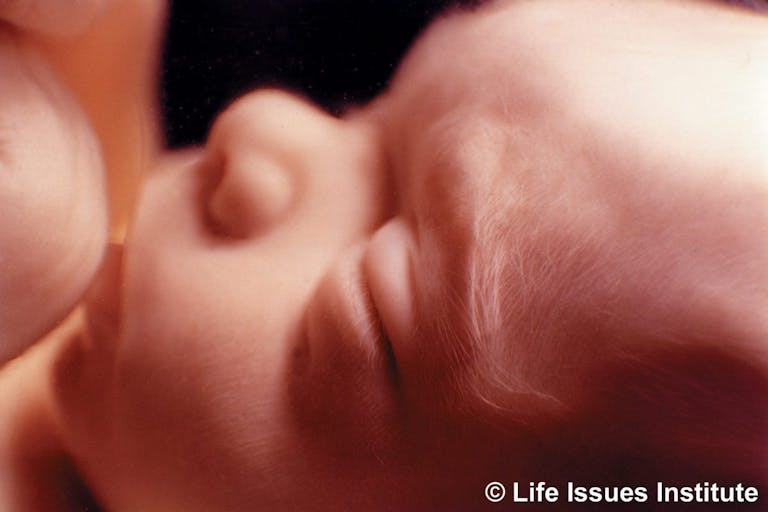
New young adult book promotes abortion
Cassy Cooke
·
New Hampshire Senate rejects two pro-abortion bills: ‘These bills offered only death’
The New Hampshire Senate Judiciary Committee voted on Tuesday to recommend that the Senate reject two bills: HB224, which would repeal the penalties for those who break a state law protecting preborn children from abortion after six months, and HB88, which would introduce a right to abortion in the state.
“The Senate Judiciary Committee today responded to the overwhelming weight of testimony in support of protecting mothers and preborn babies with the Fetal Life Protection Act by rejecting HB224 and HB88. Rather than offering real help to mothers in need, these bills offered only death,” said Jason Hennessey, president of NH Right to Life, in a statement.
On a party-line vote, the committee recommended that the full Senate reject the legislation, with those in opposition to the bills stating that such bills are unnecessary because abortion remains legal in New Hampshire for up to 24 weeks and after 24 weeks when the mother’s health or life is said to be at risk (though directly and intentionally killing a preborn child is not medically necessary).
“We’ve… had this legislation already this year, and we said no to it,” Republican Majority Leader Sharon Carson said. “So, this is just another version of the same bill.”
Upon this recommendation, the NH Senate on Thursday then voted 14-10 against moving the bills forward, with all senators voting along party lines. Jason Hennessey said in response, “By rejecting HB224 today, the Senate upheld our humanity by protecting mothers and their ready-to-be-born children from dangerous late term abortions. Overwhelmingly, NH citizens agree that a healthy baby at 8 months deserves a chance at life, even if mom needs to leave them at the hospital under the Safe Haven law.”
HB 224 would have repealed the criminal and civil penalties for abortionists who violate the Fetal Life Protection Act (FLPA), which protects babies after 24 weeks. It specifically sought to repeal RSA 329:46, which makes such an abortion a class B felony.
Article continues below
Dear Reader,
In 2026, Live Action is heading straight where the battle is fiercest: college campuses.
We have a bold initiative to establish 100 Live Action campus chapters within the next year, and your partnership will make it a success!
Your support today will help train and equip young leaders, bring Live Action’s educational content into academic environments, host on-campus events and debates, and empower students to challenge the pro-abortion status quo with truth and compassion.
Invest in pro-life grassroots outreach and cultural formation with your QUADRUPLED year-end gift!
Hennessey explained, “HB224 tried to trick the legislature into legalizing risky late-term abortions for any reason by claiming that the FLPA’s penalties would worsen NH’s ‘maternity deserts’ where mothers cannot obtain healthcare. Once you dig a little, this doesn’t make sense. The facts are: 1) NH is one of the few states with no current maternity deserts, 2) only a very small percentage of obstetricians do any elective abortions, and 3) almost all states ban the abortion of viable children. On top of that, elective abortion through birth is not only extreme to a super-majority of Granite Staters, but is only allowed in 7 countries in the world, including N[orth] Korea and China.”
He noted that the FLPA prevents the killing of preborn children who could be immediately delivered instead of aborted and then left at the hospital under the state’s Safe Haven Law.
New Hampshire’s proposed HB88, also called the New Hampshire Access to Abortion Care Act, said the state will not “restrict or interfere with an individual’s exercise of their private decision to terminate a pregnancy except as provided in RSA 329:43 through RSA 329:50 [the FLPA] and RSA 132: 32 through RSA 132:36 [the Partial-Birth Abortion Ban Act].” The act claims abortion “is vital to the equality and liberty of all individuals.”
Hennessey explained before the Senate’s rejection, “HB88 would codify injustice into our laws by saying that some people do not deserve the rights that others have. The bill is also legally questionable, in that it attempts to bind future legislatures without being part of the constitution.” He added that some people believe the wording of HB88 could allow any person to end any woman’s pregnancy.
Despite the Senate’s rejection of the bills, pro-lifers in the state still believe the FLPA is at risk.
Live Action News is pro-life news and commentary from a pro-life perspective.
Contact editor@liveaction.org for questions, corrections, or if you are seeking permission to reprint any Live Action News content.
Guest Articles: To submit a guest article to Live Action News, email editor@liveaction.org with an attached Word document of 800-1000 words. Please also attach any photos relevant to your submission if applicable. If your submission is accepted for publication, you will be notified within three weeks. Guest articles are not compensated (see our Open License Agreement). Thank you for your interest in Live Action News!

Cassy Cooke
·
Pop Culture
Cassy Cooke
·
International
Cassy Cooke
·
Issues
Bridget Sielicki
·
Issues
Angeline Tan
·
Issues
Nancy Flanders
·
Issues
Nancy Flanders
·
Media
Nancy Flanders
·
Issues
Nancy Flanders
·
Activism
Nancy Flanders
·
Issues
Nancy Flanders
·